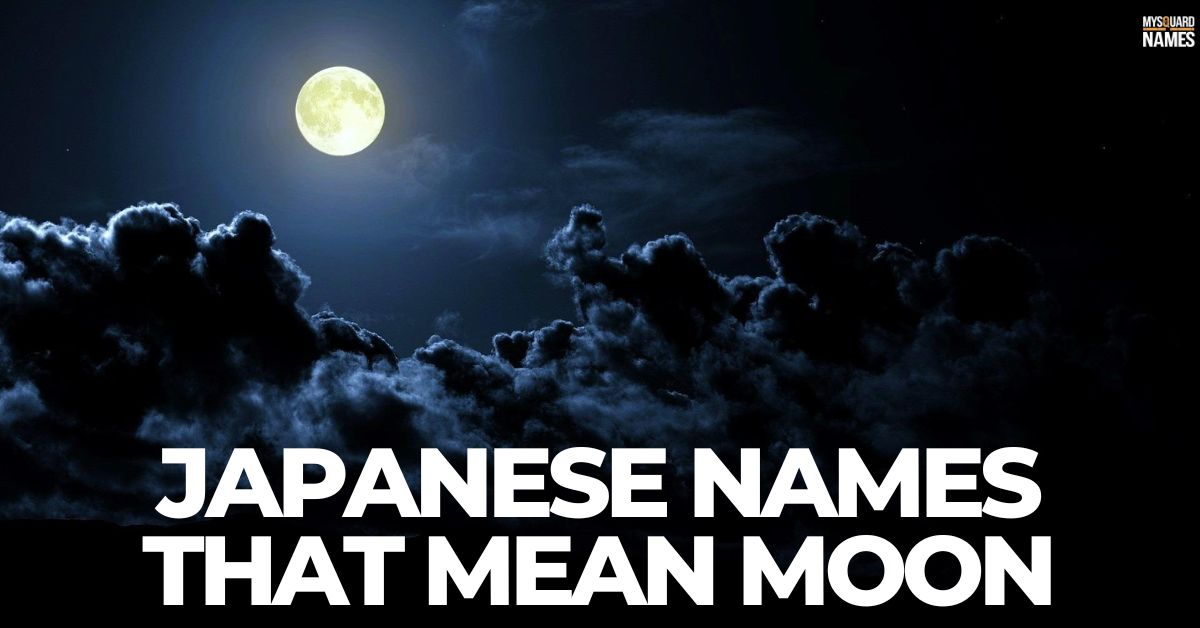Japanese names hold deep meanings, often inspired by nature, mythology, and celestial beauty. Among them, names associated with the moon stand out for their elegance and symbolism. The moon represents mystery, serenity, and a connection to the universe in Japanese culture. Choosing a name that means “moon” reflects a sense of tranquility and timeless charm.
From classic names rooted in tradition to rare and unique choices, Japanese moon-related names offer something for everyone. Whether you’re drawn to poetic meanings or historical significance, these names capture the beauty of lunar symbolism. Many of them are inspired by legends, nature, and even the phases of the moon. This makes them perfect for those who appreciate names with depth and cultural richness.
In this guide, we’ve compiled over 140 Japanese names that mean “moon” for boys, girls, and even surnames. Each name carries a special meaning, often influenced by kanji characters and their interpretations. Whether you’re naming a baby, a character, or just exploring, you’ll find a name that resonates with you. Let’s dive into this beautiful collection of moon-inspired Japanese names!
Why Choose a Japanese Name That Means Moon?
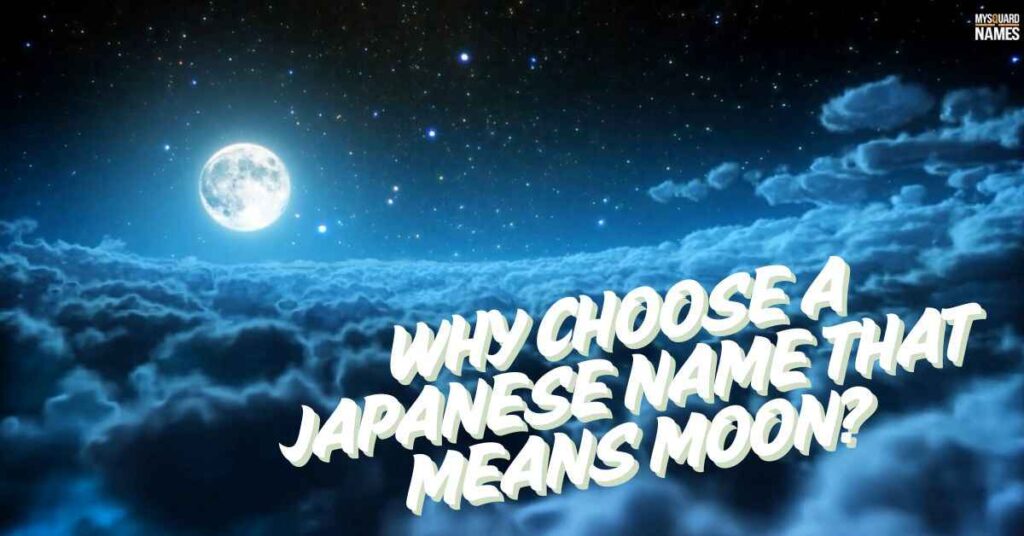
Choosing a Japanese name that means “Moon” adds a touch of elegance, mystery, and cultural depth. The Moon symbolizes beauty, tranquility, and the passage of time in Japanese traditions, making these names meaningful and poetic.
Many lunar-inspired names reflect qualities like wisdom, serenity, and a connection to nature. Whether for a baby, a character, or a pet, a Moon-related Japanese name carries a timeless and enchanting charm.
Japanese Naming Traditions and Lunar Symbolism
Japanese naming traditions often draw inspiration from nature, seasons, and celestial bodies. The Moon symbolizes beauty, change, and enlightenment in Japanese culture. Lunar-themed names reflect elegance, mystery, and a deep connection to tradition.
- Japanese names often incorporate nature, seasons, and celestial elements for deep symbolic meanings.
- The Moon represents beauty, transformation, and spiritual enlightenment in Japanese culture.
- Lunar symbolism is common in poetry, folklore, and traditional storytelling.
- Many Japanese names use kanji characters related to the Moon, like 月 (tsuki) and 明 (akira).
- Choosing a moon-related name reflects elegance, mystery, and a timeless cultural connection.
Japanese Boy Names That Mean Moon
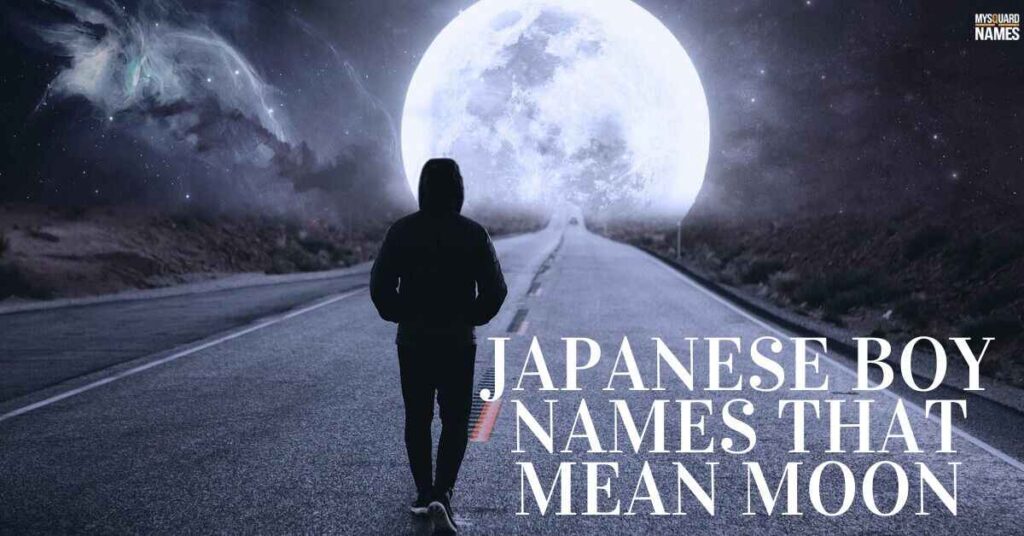
Japanese boy names that mean Moon often carry a sense of mystery, wisdom, and tranquility. Names like Tsukiya (月夜) meaning “moonlit night” or Mitsuki (光月) meaning “shining moon” reflect the beauty of lunar light. These names are deeply rooted in Japanese culture, symbolizing guidance and quiet strength.
- Tsukiya (月夜) – Moonlit night
- Mitsuki (光月) – Shining moon
- Harutsuki (春月) – Spring moon
- Kaito (海翔 / 海渡) – Ocean flying or ocean crossing (inspired by the moon’s effect on tides)
- Tsukito (月翔) – Moon that soars
- Raito (雷翔) – Thunder and moon soaring
- Souta (蒼月) – Blue moon
- Rengetsu (蓮月) – Lotus moon
- Kōgetsu (晧月) – Bright, shining moon
- Mangetsu (満月) – Full moon
- Reigetsu (怜月) – Wise or gentle moon
- Hakutsuki (白月) – White moon
- Gekkou (月光) – Moonlight
- Getsuhiko (月彦) – Moon prince
- Tomotsuki (灯月) – Illuminated moon
- Hizuki (陽月) – Sun and moon
- Tsukiharu (月陽) – Moon and sunlight
- Fūgetsu (風月) – Wind and moon
- Tsukiyoshi (月義) – Righteous moon
- Shingetsu (新月) – New moon
- Tsukihide (月英) – Glorious moon
- Reigetsu (麗月) – Beautiful moon
- Tsukikage (月影) – Moon shadow
- Getsumei (月明) – Moon brightness
- Aratsuki (新月) – Fresh moon
- Ransetsu (嵐月) – Stormy moon
- Tsukitaka (月高) – Tall or high moon
- Kazan (華月) – Elegant moon
- Gesshō (月照) – Moon illumination
- Tsukihiko (月彦) – Moon boy
- Tsukinori (月典) – Moon principles
- Rengetsu (蓮月) – Lotus moon
- Seigetsu (清月) – Pure moon
- Tsukiharu (月晴) – Clear moon
- Tsukihide (月秀) – Outstanding moon
- Tsukifumi (月文) – Moon’s writing
- Kazuki (和月) – Harmonious moon
- Meigetsu (名月) – Famous or harvest moon
- Gekkō (月虹) – Moonbow (lunar rainbow)
- Tsukinao (月直) – Honest moon
- Jōgetsu (静月) – Serene moon
- Rōgetsu (朗月) – Bright and clear moon
- Engetsu (円月) – Perfect or round moon
- Tsukisato (月里) – Moon village
- Shougetsu (松月) – Pine and moon
Japanese Girl Names That Mean Moon
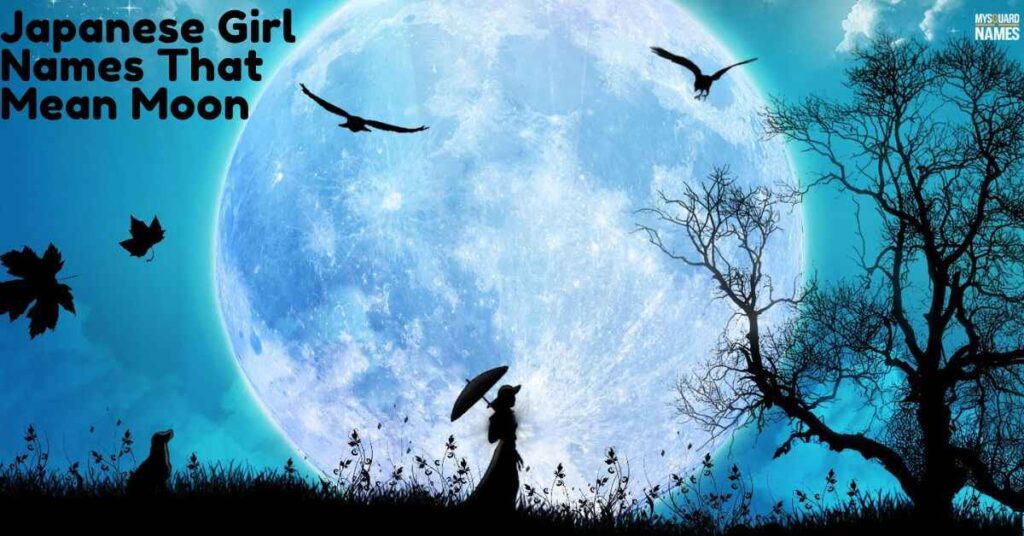
Japanese girl names that mean moon often carry a sense of beauty, mystery, and elegance. Many of these names combine “tsuki” (月), meaning moon, with elements that symbolize brightness, nature, or serenity. They reflect the deep cultural appreciation for the moon’s gentle glow and its poetic connection to femininity.
- Tsukiko (月子) – “Moon child”
- Mitsuki (美月) – “Beautiful moon”
- Ringetsu (凛月) – “Cold, crisp moon”
- Hizuki (陽月) – “Sun and moon”
- Kaguya (かぐや) – “Shining moon princess” (from the Tale of the Bamboo Cutter)
- Satsuki (皐月) – “May moon”
- Tsukina (月菜) – “Moon greens”
- Yuzuki (優月) – “Gentle moon”
- Hazuki (葉月) – “Leaf moon” (August in the Japanese calendar)
- Ritsuki (律月) – “Harmonious moon”
- Mizuki (瑞月) – “Auspicious moon”
- Kozuki (小月) – “Little moon”
- Meigetsu (明月) – “Bright full moon”
- Nozuki (乃月) – “Moon of hope”
- Fuyutsuki (冬月) – “Winter moon”
- Harutsuki (春月) – “Spring moon”
- Tsukihana (月花) – “Moon flower”
- Yorutsuki (夜月) – “Night moon”
- Chizuki (千月) – “Thousand moons”
- Reigetsu (麗月) – “Elegant moon”
- Shizuki (詩月) – “Poetic moon”
- Amatsuki (天月) – “Heavenly moon”
- Kanzuki (神月) – “Divine moon”
- Tsukime (月芽) – “Moon bud”
- Sakurazuki (桜月) – “Cherry blossom moon”
- Hoshizuki (星月) – “Star and moon”
- Rikizuki (力月) – “Powerful moon”
- Manazuki (真月) – “True moon”
- Aizuki (愛月) – “Beloved moon”
- Utsukizuki (美月) – “Graceful moon”
- Nanazuki (七月) – “Seventh moon”
- Enzuki (円月) – “Perfect circle moon”
- Shozuki (昭月) – “Illuminating moon”
- Hisazuki (久月) – “Eternal moon”
- Kazuki (和月) – “Harmonious moon”
- Nagizuki (凪月) – “Calm moon”
- Sorazuki (空月) – “Sky moon”
- Fuzuki (風月) – “Wind and moon”
- Hizotsuki (灯月) – “Glowing moon”
- Kanezuki (鐘月) – “Chiming moon”
- Shinazuki (品月) – “Refined moon”
- Suzuki (涼月) – “Cool moon”
- Tamazuki (珠月) – “Jewel moon”
- Yamatsuki (山月) – “Mountain moon”
- Hinazuki (陽菜月) – “Sunlit moon”
Unisex Japanese Names Associated with the Moon
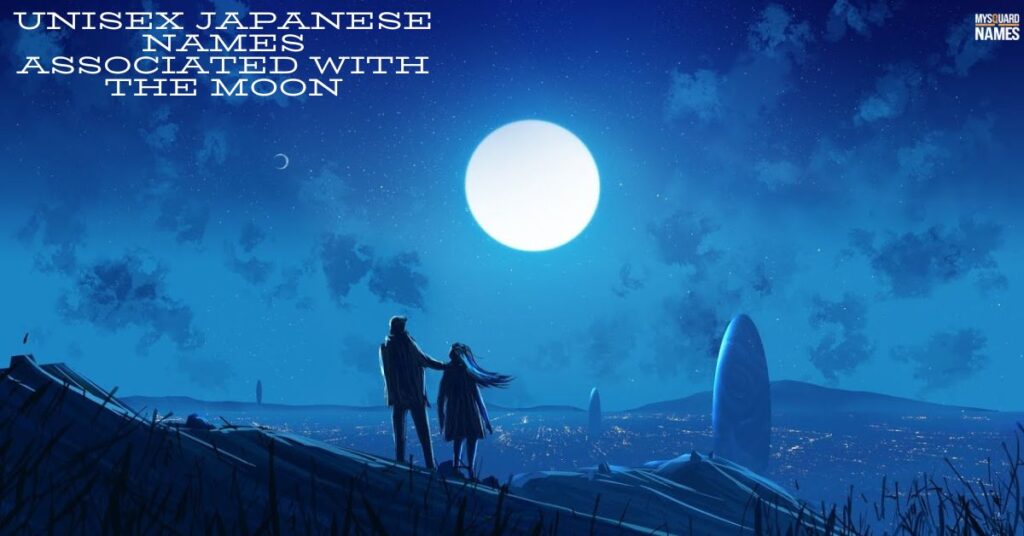
Unisex Japanese names inspired by the moon often reflect its beauty, mystery, and calming presence. Names like Tsukimi (月見), meaning “moon viewing,” and Mizuki (瑞月), meaning “auspicious moon,” are popular for both boys and girls. These names carry a sense of serenity and celestial charm, making them timeless choices.
- Tsukiko (月子) – Moon child
- Mitsuki (光月) – Shining moon
- Tsukiya (月夜) – Moonlit night
- Ruka (琉月) – Flowing moon
- Tsukine (月音) – Moon sound
- Satsuki (五月) – May (linked to the lunar calendar)
- Hizuki (陽月) – Sun and moon
- Kozuki (小月) – Little moon
- Tsukihiro (月弘) – Expansive moon
- Aizuki (愛月) – Beloved moon
- Rengetsu (蓮月) – Lotus moon
- Tsukito (月翔) – Flying moon
- Haruzuki (春月) – Spring moon
- Yuizuki (結月) – Bonded by the moon
- Nozuki (野月) – Moon in the field
- Meigetsu (明月) – Bright moon
- Fuzuki (風月) – Wind and moon
- Kanazuki (神無月) – Month of no gods (old lunar calendar reference)
- Tsukiharu (月晴) – Clear moon
- Hozuki (鬼灯) – Demon lantern (linked to the moon’s glow)
- Shizuki (詩月) – Poetic moon
- Yuzuki (優月) – Gentle moon
- Tsukikage (月影) – Moonlight shadow
- Sazuki (紗月) – Gauzy moon
- Tsukishiro (月白) – Pure white moon
- Ritsuki (律月) – Harmonious moon
- Mizuki (瑞月) – Auspicious moon
- Sakurazuki (桜月) – Cherry blossom moon
- Kagetsu (花月) – Flower moon
- Ichizuki (一月) – First moon
- Amatsuki (天月) – Heavenly moon
- Senzuki (千月) – Thousand moons
- Kazuki (和月) – Harmonious moon
- Reizuki (霊月) – Spirit moon
- Hazuki (葉月) – Leaf moon
- Tsukimori (月守) – Moon guardian
- Uzuki (卯月) – Fourth lunar month
- Akizuki (秋月) – Autumn moon
- Chizuki (智月) – Wise moon
- Tomozuki (友月) – Friendly moon
- Shingetsu (新月) – New moon
- Mangetsu (満月) – Full moon
- Tsukihana (月華) – Moon flower
- Hoshizuki (星月) – Star and moon
- Kanzuki (寒月) – Cold moon
Read this Blog:75+ Unique & Beautiful Japanese Names That Mean Sun
Japanese Surnames Meaning Moon
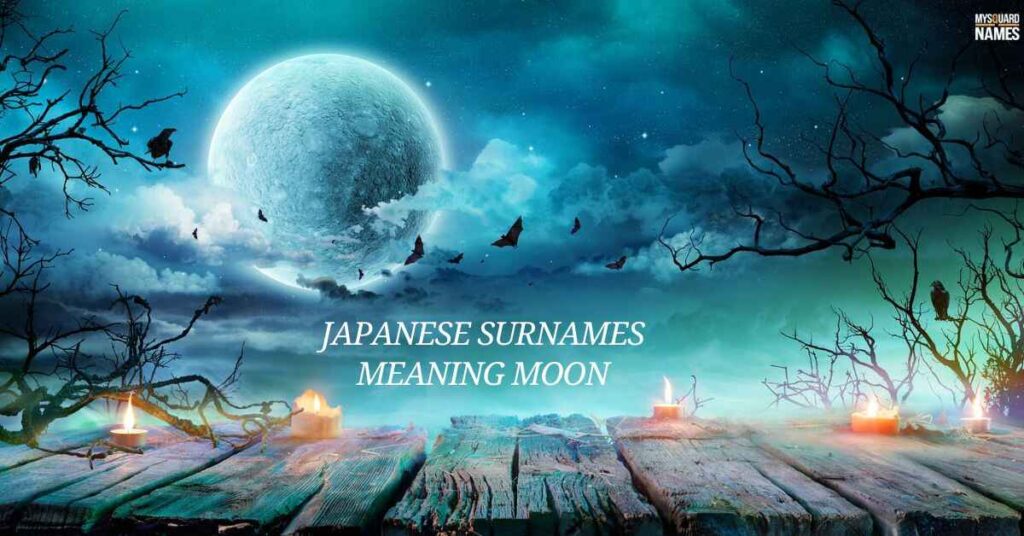
Japanese surnames that mean “moon” often reflect nature, time, and celestial beauty. Names like Tsukimoto (月本) meaning “origin of the moon” or Tsukihara (月原) meaning “moon field” carry poetic symbolism. These surnames connect families to the lunar cycle, emphasizing harmony, mystery, and tradition.
- Tsukimoto (月本) – Origin of the moon
- Tsukihara (月原) – Moon field
- Tsukiyama (月山) – Moon mountain
- Tsukishiro (月白) – White moon
- Tsukino (月野) – Moon field
- Tsukisato (月里) – Moon village
- Tsukizaki (月崎) – Moon cape
- Tsukimura (月村) – Moon village
- Tsukiwaki (月脇) – Beside the moon
- Tsukibayashi (月林) – Moon forest
- Tsukikage (月影) – Moon shadow
- Tsukihashi (月橋) – Moon bridge
- Tsukishima (月島) – Moon island
- Tsukimori (月森) – Moon forest
- Tsukihiko (月彦) – Moon prince
- Tsukiya (月谷) – Moon valley
- Tsukiware (月原) – Moon plain
- Tsukitani (月谷) – Moon valley
- Tsukisawa (月沢) – Moon swamp
- Tsuki Shirogane (月銀) – Silver moon
- Tsukihara (月平) – Calm moon
- Tsukaguchi (月口) – Moon entrance
- Tsukikawa (月川) – Moon river
- Tsukihane (月羽) – Moon feather
- Tsukitori (月取) – Moon capture
- Tsukihashi (月端) – Edge of the moon
- Sakizou (月蔵) – Moon storage
- Tsukipara (月平) – Moon plateau
- Tsujikubo (月窪) – Moon hollow
- Tsukiwada (月和田) – Harmonious moon field
- Tsukigasa (月ヶ迫) – Moon valley
- Tsukine (月根) – Root of the moon
- Tsukio (月尾) – Moon’s end
- Tsukisue (月末) – Moon’s conclusion
- Tsuchibayashi (月林) – Moon grove
- Tsukimasu (月松) – Moon pine tree
- Tsukikawa (月沢) – Moon stream
- Tsukibito (月人) – Moon person
- Tsukihada (月肌) – Moon skin
- Tsukihime (月姫) – Moon princess
- Tsukiyo (月世) – Moon world
- Tsukifune (月舟) – Moon boat
- Tsukimine (月嶺) – Moon peak
- Tsukihoshi (月星) – Moon star
- Tsukikage (月風) – Moon breeze
Modern and Unique Names That Mean Moon
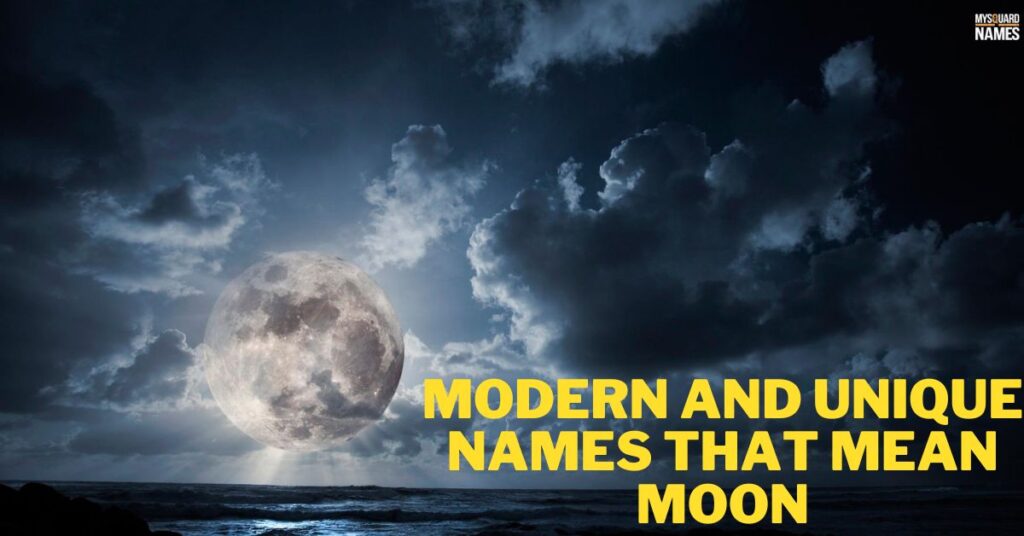
Modern and unique Japanese names that mean moon blend tradition with creativity. Names like Runa (月奈) and Getsumei (月明) offer a fresh yet meaningful touch. These names reflect the moon’s beauty while standing out as distinctive choices.
- Tsukiko (月子) – “Moon child”
- Mitsuki (光月) – “Shining moon”
- Tsukiya (月夜) – “Moonlit night”
- Runa (ルナ) – “Luna, the moon”
- Hazuki (葉月) – “August moon”
- Soutuki (蒼月) – “Blue moon”
- Meigetsu (名月) – “Harvest moon”
- Yuzuki (柚月) – “Gentle moon”
- Hizuki (陽月) – “Sun and moon”
- Kuzuki (久月) – “Eternal moon”
- Selene (Greek) – “Moon goddess”
- Luna (Latin) – “The moon”
- Chandra (Sanskrit) – “Moon deity”
- Mahina (Hawaiian) – “Moonlight”
- Artemis (Greek) – “Goddess of the moon”
- Hala (Arabic) – “Halo around the moon”
- Io (Greek) – “One of Jupiter’s moons”
- Esmeray (Turkish) – “Dark moon”
- Badar (Arabic) – “Full moon”
- Tala (Tagalog) – “Goddess of the bright moon”
- Ilkay (Turkish) – “First moon”
- Jaci (Tupi-Guarani) – “Moon deity”
- Ayla (Turkish) – “Moonlight”
- Sasi (Thai) – “Moon”
- Diana (Roman) – “Goddess of the moon”
- Phoebe (Greek) – “Bright moon”
- Zira (Swahili) – “Moonlight”
- Lusine (Armenian) – “Moon”
- Hanwi (Lakota) – “Night sun, moon spirit”
- Metztli (Aztec) – “Moon goddess”
- Callisto – “One of Jupiter’s moons”
- Elara – “A moon of Jupiter”
- Thalassa – “A moon of Neptune”
- Hyperion – “A moon of Saturn”
- Oberon – “A moon of Uranus”
- Titan – “Largest moon of Saturn”
- Leda – “A moon of Jupiter”
- Rhea – “Titan goddess of the moon”
- Triton – “Largest moon of Neptune”
- Despina – “A moon of Neptune”
- Selva – “Moonlit forest”
- Nocturna – “Of the night moon”
- Nyx – “Goddess of night and the moon”
- Amaris – “Child of the moon”
- Lunara – “Mystical moon glow”
Conclusion
Japanese names that mean “moon” carry deep cultural and symbolic significance, reflecting beauty, mystery, and serenity. Rooted in tradition, these names often connect to lunar phases, nature, and spiritual beliefs. Whether chosen for their poetic elegance or celestial charm, they offer a unique and meaningful identity. From classic names like Tsukiko (moon child) to modern choices like Runa (luna), each name holds a special connection to the moon’s allure. Whether for a child, pet, or character, a moon-inspired Japanese name brings a sense of calm, wisdom, and celestial wonder, making it a timeless and enchanting choice.
